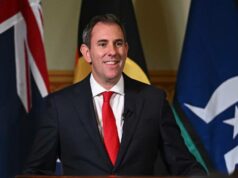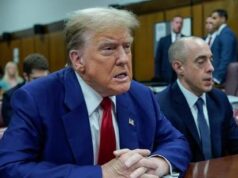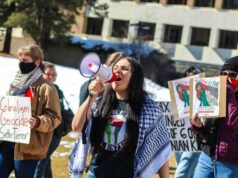Guyana, Venezuela agree to not use force in Esequibo dispute

The leaders of Guyana and Venezuela had a tense meeting recently as regional nations sought to defuse a long-standing territorial dispute that has escalated with Venezuelans voting in a referendum to claim two-thirds of their smaller neighbor.
Pushed by regional partners, Guyanan President Irfaan Ali and Venezuelan President Nicolás Maduro had agreed to meet at the Argyle International airport on the eastern Caribbean island of St. Vincent. The prime ministers of Barbados, Dominica and Trinidad and Tobago said they also would attend.
The meeting was aimed at easing the tensions that have flared over Essequibo, a vast border region rich in oil and minerals that represents much of Guyana’s territory but that Venezuela claims as its own.
Venezuela’s president followed the referendum by ordering his state-owned companies to explore and exploit the oil, gas and mines in Essequibo. And both sides had put their militaries on alert.
Venezuela insists the Essequibo region was part of its territory during the Spanish colonial period, and argues the 1966 Geneva Agreement between their country, Britain and Guyana, the former colony of British Guiana, nullified the border drawn in 1899 by international arbitrators.
In a letter sent Tuesday to Ralph Gonsalves, prime minister of St. Vincent and the Grenadines, Guyana’s president said the Geneva Agreement states that the International Court of Justice should settle any border controversy.
Ali also said he was concerned about what he described as “inaccurate assertions” made by Maduro’s own letter to Gonsalves.
He rebutted Maduro’s description of oil concessions granted by Guyana as being “in a maritime area yet to be delimited.” Ali said all oil blocks “are located well within Guyanese waters under international law, including the United Nations Convention on the Law of the Sea.”
Ali also rejected what he said Maduro described as “meddling of the United States Southern Command, which has begun operations in the disputed territory.”
The U.S. Southern Command conducted flight operations within Guyana in recent days.
“Any allegation that a military operation aimed at Venezuela exists in any part of Guyanese territory is false, misleading and provocative,” Ali said in his letter to Gonsalves.
Maduro’s letter to Gonsalves repeats Venezuela’s contention that the border drawn in 1899 was “the result of a scheme” between the U.S. and the U.K. It also said the dispute “must be amicably resolved in a matter acceptable to both parties.”
Maduro also referred to the Dec. 3 referendum on Venezuela claiming ownership of Essequibo, which has vast oil deposits off its coast.
The meeting between the two leaders lasted one day, although many expect the disagreement to drag on into next year.
Venezuela’s President Nicolas Maduro and Guyanese President Irfaan Ali shake hands as they meet amid tensions over a border dispute
Guyana and Venezuela on Thursday at least agreed to avoid any use of force and to not escalate tensions in their long-running dispute over the oil-rich Esequibo area after a meeting between their heads of state in Saint Vincent and the Grenadines.
The 160,000-square-km (62,000-square-mile) region is generally recognized as part of Guyana, but in recent years Venezuela has revived its claim to the territory and to offshore areas after major oil and gas discoveries.
The two countries said in a joint statement that they “will not threaten or use force against one another in any circumstances” and “will refrain, whether by words or deeds, from escalating any conflict or disagreement.”
Tensions rose sharply this month after voters in a Venezuelan referendum backed a move to make the Esequibo area a new Venezuelan state and rejected the jurisdiction of the International Court of Justice (ICJ), which is hearing the case on the border dispute.
They were further inflamed after Venezuelan President Nicolas Maduro said last week he would authorize oil exploration in the Esequibo region.
Guyanese President Irfaan Ali and Maduro met at the airport in Kingstown on Thursday, alongside representatives from the Caribbean political and economic union CARICOM, Brazil, Colombia, the United Nations and the Community of Latin American and Caribbean States.
“It was a fruitful day, intense, at moments tense, where we could speak the truth,” Maduro said after arriving back in Venezuela late on Thursday, also thanking Ali for his “frankness and willingness to have an ample dialogue”.
“It has been worth it to defend the truth of Venezuela,” Maduro added, hailing the meeting as a triumph of diplomacy.
The joint statement said disputes will be resolved in accordance with international law, though it noted that Maduro’s government does not recognize the ICJ.
The two countries will continue their dialogue in Brazil within the next three months, the statement added.
Guyana has maintained its borders are not up for discussion and has questioned the turn-out in the referendum. Political analysts in Caracas have said the vote was an attempt by Maduro to gauge support for his government ahead of a 2024 presidential election, and not a prelude to invasion. After Maduro’s plan to authorize oil exploration, Ali has sought to reassure investors in projects approved by the Guyanese government which include Exxon Mobil (XOM.N) and will soon include Chevron (CVX.N).
Guyana has the right to “approve of and facilitate any development, any investment, any partnership, any trading…to issue any license and the granting of any concession within our territorial space and within our sovereign space,” Ali told journalists earlier in the day.
Ali wore a bracelet showing a map of Guyana that includes the Esequibo and reiterated the dispute must be solved through the ICJ.
“Guyana is not seeking war, but Guyana reserves the right to work with all our partners to ensure the defense of our country,” Ali added. “Both parties committed to ensuring the region remains a zone of peace.”
Offshore areas – which Maduro has made unspecified claims to – are responsible for the entirety of oil production in Guyana. Guyana’s economy has boomed on that output, which is expected to triple to more than 1.2 million barrels per day by 2027.
“We are not going anywhere — our focus remains on developing the resources efficiently and responsibly, per our agreement with the Guyanese government,” Exxon said this week.
It added that claims by Maduro’s government that Exxon was involved in financing a plot to undermine the referendum are “ridiculous and baseless.”
Bottom of Form



